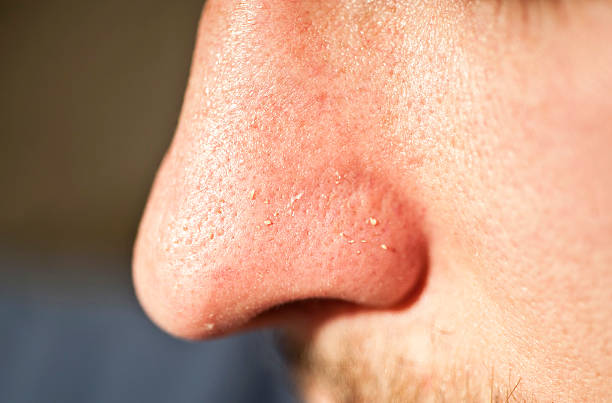Maintaining healthy skin is a universal desire, transcending age, gender, and ethnicity. However, with a market flooded with ingredients claiming to be the panacea for all skin woes, pinpointing one that stands true to its promises is a daunting task. Enter Hyaluronic Acid – the skincare world’s hydration heavyweight champion. This powerful ingredient is revered for its unique ability to cater to the needs of all skin types, from the parched plains of dry skin to the oil-rich terrain of the acne-prone. In this article, we delve into why Hyaluronic Acid, alongside other benevolent skin soothers, should hold a place of honor in your skincare regimen.
The Quest for a One-Size-Fits-All Skincare Ingredient

Skincare is often a balancing act, with different skin types presenting their own set of challenges. Dry skin cries out for moisture, oily skin seeks to reduce excess shine, while sensitive skin demands gentle care. Finding a skincare ingredient that can address these varied concerns without exacerbating any is akin to finding a needle in a haystack. Yet, amidst the myriad of options, Hyaluronic Acid shines as a beacon of hope for harmonizing skin health.
Hyaluronic Acid: The Hydration Hero for All
Hyaluronic Acid, a naturally occurring molecule in our bodies, holds the key to smooth, flawless, and hydrated skin. Its ability to retain water—up to 1000 times its weight—makes it an indispensable moisturizing agent for all skin types. For oily skin, it provides the right amount of hydration without adding oil, while for dry skin, it acts as a sponge that keeps it plump and moist. Even sensitive or acne-prone skin types can embrace it without fear, thanks to its gentle, non-irritating properties.
The table below encapsulates the universal benefits that Hyaluronic Acid offers to various skin types:
| Skin Type | Benefits of Hyaluronic Acid |
|---|---|
| Dry Skin | Intense hydration, reduced flakiness |
| Oily Skin | Lightweight moisture, balanced oil production |
| Combination Skin | Adaptive hydration, smoothed texture |
| Acne-Prone Skin | Hydrates without clogging pores |
| Sensitive Skin | Replenishes moisture, reduces irritation |
Additional Skin-Loving Ingredients That Suit Everyone

While Hyaluronic Acid is the star of universal skin suitability, other ingredients also feature prominently for their inclusive benefits. Vitamin C, a revered antioxidant, provides a brightening effect and evens out skin tone. Ceramides play a crucial role in reinforcing the skin’s natural barrier, offering reparative benefits particularly important for aging or damaged skin. Aloe Vera has long been celebrated for its soothing and anti-inflammatory properties, making it a go-to remedy for irritation or sunburn.
The following list elucidates some complimentary ingredients that support skin health universally:
- Vitamin C: Brightens and provides antioxidant protection against environmental aggressors.
- Ceramides: Support skin barrier function and maintain hydration.
- Aloe Vera: Soothes inflammation and calms irritated skin.
Tips for Incorporating Universal Ingredients into Your Routine
Integrating these skin-loving ingredients into your daily skincare routine needn’t be complicated. Starting with a baseline of products that contain Hyaluronic Acid can significantly boost your skin’s moisture levels. Vitamin C serums are best applied in the morning to take advantage of their antioxidant properties, while products with Ceramides and Aloe Vera can be used as needed to soothe and repair the skin.
Here’s a simple guide to help you incorporate these ingredients effectively:
- Identify your primary skin concerns and the ingredients best suited to address them.
- Consider the formulation of the product you are choosing – serums, creams, or gels.
- Apply products with active ingredients like Vitamin C during the day and reparative ingredients like Ceramides in the evening.
Are These Ingredients Truly for Everyone?
While the ingredients discussed are generally suitable for all skin types, individual responses can vary. Allergies, sensitivities, and specific skin conditions could necessitate caution or avoidance of certain products. For this reason, patch testing new skincare items is a crucial step in preventing adverse reactions. As much as an ingredient might be deemed ‘universal,’ one must remember that personal biochemistry plays a significant role in how our skin will react.
Conclusion: Embracing Inclusivity in Skincare
The quest for inclusive skincare ingredients is not in vain. Hyaluronic Acid leads the pack in its versatility and compatibility with different skin types, offering a democratic answer to skincare. Accompanied by fellow all-stars like Vitamin C, Ceramides, and Aloe Vera, it’s possible to curate a skincare regime that respects and nourishes the individuality of one’s skin. Ultimately, it’s about finding the right balance of ingredients that harmonize with your skin to unveil its natural radiance.
FAQs:
- 1. Can oily skin types benefit from Hyaluronic Acid?
- Yes, Hyaluronic Acid is excellent for oily skin types because it offers essential hydration without contributing to excess oiliness.
- 2. Is Vitamin C suitable for sensitive skin?
- Vitamin C can be suitable for sensitive skin when used in appropriate concentrations, or when formulated as a gentle derivative.
- 3. Are there any side effects of using ceramides in skincare?
- Ceramides are typically very well tolerated and side effects are rare, making them a safe choice for strengthening the skin barrier.
- 4. How often should I apply products containing these universal ingredients?
- Products with Hyaluronic Acid can typically be used twice daily, while Vitamin C is best used once daily, in the morning.
- 5. Can natural plant-based ingredients cause allergies?
- Yes, even natural, plant-based ingredients can cause allergic reactions in certain individuals, hence patch-testing is advisable.



